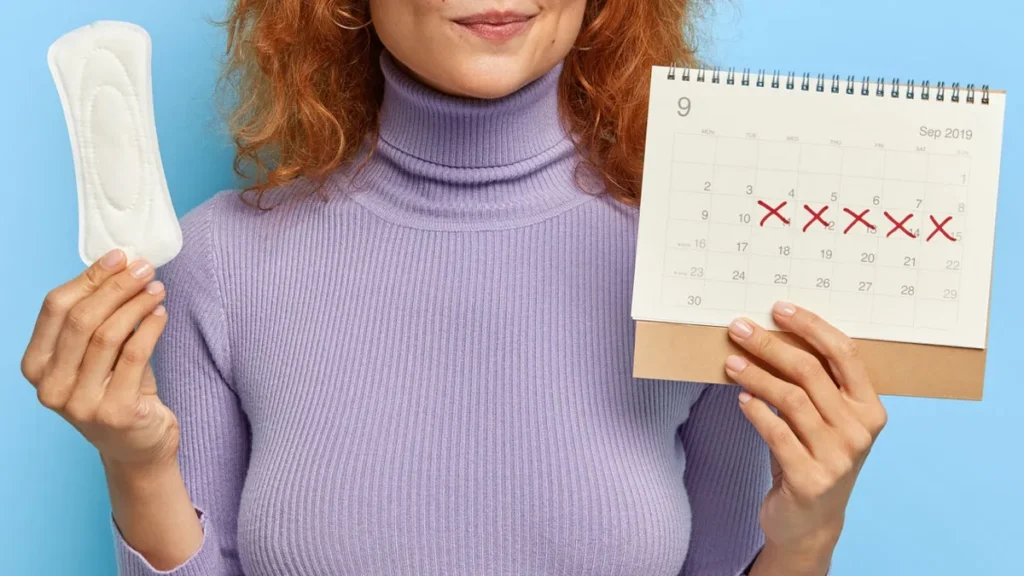
Signs of Ovulation: How to Know When You’re Most Fertile
Understanding when you ovulate is one of the most powerful ways to take charge of your reproductive health—whether you’re trying to conceive or simply want to know your body better. In this guide, we’ll walk you through what ovulation is, how to identify the signs of ovulation, and most importantly, how to calculate your most fertile days.
Let’s clear the confusion and give you a clear plan to track your fertility the smart and natural way.
Table of Contents
ToggleWhat is Ovulation?
Ovulation is the process where one of your ovaries releases an egg. It usually happens once in every menstrual cycle, about 12 to 16 days before your next period. This egg is available for fertilization for about 12 to 24 hours.
So if you’re trying to get pregnant, this short window is your most fertile period. And if you’re not planning a pregnancy, it’s just as important to know when you’re ovulating.
When Does Ovulation Occur?
In a textbook 28-day menstrual cycle, ovulation usually occurs around day 14. But every woman’s cycle is different. Some ovulate earlier, some later.
Here’s a simple way to estimate it:
Ovulation Day = Length of Cycle – 14 Days
For example:
- If your cycle is 30 days: 30 – 14 = Day 16 is ovulation
- If your cycle is 26 days: 26 – 14 = Day 12 is ovulation
This calculation gives you an estimate, but tracking physical signs of ovulation makes it more accurate.
7 Real Signs of Ovulation to Watch Out For
These are proven, natural signs your body gives when it’s ovulating. Learn to read them, and you’ll know exactly when you’re fertile.
1. Clear, Stretchy Cervical Mucus
Your vaginal discharge becomes slippery and stretchy—like raw egg white. This mucus helps sperm move more easily.
2. Mild Pelvic Pain or Cramps
Some women feel a slight twinge or cramp on one side of the lower abdomen—this is called mittelschmerz, and it’s a sign the ovary is releasing an egg.
3. Slight Rise in Basal Body Temperature (BBT)
After ovulation, your body temperature slightly rises by 0.5°F to 1.0°F. You’ll need a BBT thermometer and track it every morning before getting out of bed to see the pattern.
4. Increased Sex Drive
Hormonal changes can make you feel more interested in intimacy during ovulation—your body is wired to do this!
5. Breast Tenderness
Due to rising progesterone levels after ovulation, your breasts may feel sore or fuller.
6. Light Spotting
A small amount of spotting or a pinkish discharge can happen when the follicle bursts during ovulation.
7. Heightened Senses
Some women notice stronger smells, tastes, or vision during ovulation due to hormonal shifts.
How to Calculate Your Ovulation Period Accurately
Here’s a simple, actionable 3-step method:
- Track Your Cycle Length
- Count from the first day of your period to the day before the next one.
- Do this for 3 months to find an average.
- Count from the first day of your period to the day before the next one.
- Use the Formula: Cycle Length – 14
- Gives you an estimate of ovulation day.
- Gives you an estimate of ovulation day.
- Monitor Physical Signs
- Track your cervical mucus, BBT, and any cramping to pinpoint it better.
- Track your cervical mucus, BBT, and any cramping to pinpoint it better.
Bonus Tip: Use a fertility tracking app or ovulation predictor kits (OPKs) to confirm.
When to See a Gynaecologist
Sometimes, tracking ovulation isn’t easy. You should consider seeing a gynaecologist if:
- Your periods are irregular or absent
- You’ve been trying to conceive for over 6–12 months without success
- You have PCOS, thyroid issues, or other hormonal concerns
- You experience extreme pain or heavy bleeding during ovulation
At Hale Clinics, our expert Gynaecologist in Chandigarh can help you with fertility evaluations, hormonal testing, and advanced reproductive care to guide you on your journey with clarity and confidence.
Take Charge of Your Fertility with Expert Support
Understanding ovulation is just the beginning. Whether you’re planning a pregnancy or solving cycle-related issues, expert guidance can make all the difference.
Need help identifying your ovulation period or managing reproductive health? Book a consultation with our trusted Gynaecologist in Chandigarh at Hale Clinics located in mohali (Chandigarh). We’re here to guide you with empathy, precision, and care.
FAQs
Q1: How do I know if I’m ovulating?
Ans: Look for signs like stretchy cervical mucus, mild cramps, breast tenderness, and increased libido. You can also use ovulation kits or track your BBT.
Q2: Can I get pregnant if I have sex during ovulation?
Ans: Yes, the chances of conception are highest during your ovulation period—ideally within 24 hours after the egg is released.
Q3: What if I don’t see any signs of ovulation?
Ans: You may not be ovulating regularly. It’s best to consult a gynaecologist to check for underlying issues.
